Raisi Travels To Qatar To Represent Iran At Gas Exporting Forum
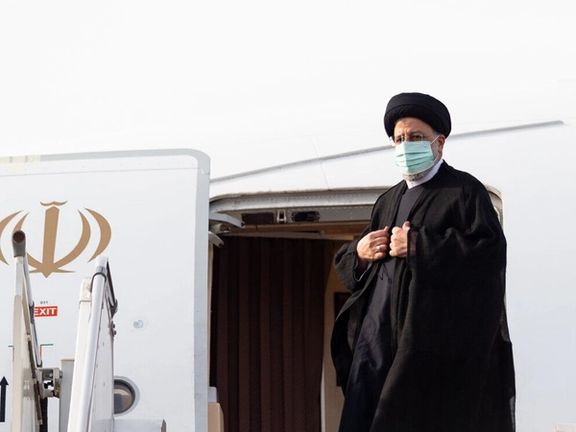
Iranian President Ebrahim Raisi (Raeesi) has traveled to Qatar to attend the sixth summit of the Gas Exporting Countries Forum (GECF).

Iranian President Ebrahim Raisi (Raeesi) has traveled to Qatar to attend the sixth summit of the Gas Exporting Countries Forum (GECF).
Raeisi arrived in Doha on Monday to hold high-level talks with Emir Tamim bin Hamad Al Thani and is also scheduled to address the GECF summit on Tuesday.
Several ministers and officials are accompanying Raisi and several agreements and memorandums of understanding (MoUs) are to be signed during his two-day visit. Iran and Qatar share the world’s largest gas-field, with the Iranian part known as South Pars and Qatar’s as North Dome.
Iran’s roads and transport minister, Rostam Ghasemi, told the state broadcaster that four agreements will be signed between the two countries, the most important of which is about a plan to connect Iran and Qatar via an underwater tunnel.
According to Ghasemi, two of the other agreements are about shipping and boosting maritime trade, and the fourth relates to improving air travel.
The trip could also be an opportunity for Qatar to discuss Iran’s nuclear negotiations with world powers and the issue of direct talks with the United States. Iran has rejected any mediation on the issue.
Washington is also liaising with energy-producing states and firms over possible diversion of supplies to Europe should Russia invade Ukraine. Moscow supplies one-third of Europe’s natural gas and might stop winter deliveries if sanctioned by the US or western Europe over any action in Ukraine.
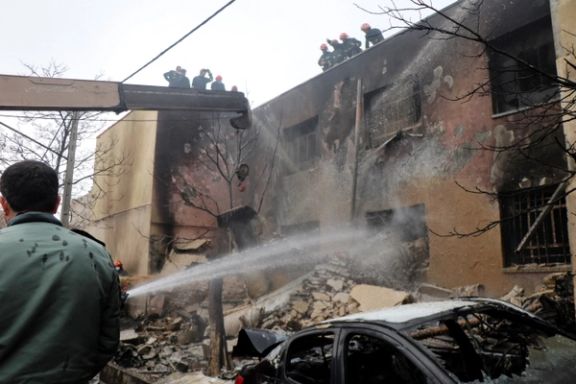
An Iranian F-5 fighter jet has crashed into a stadium in the northwest city of Tabriz Monday morning, killing a civilian and its two pilots.
The crash happened in a residential area in the center of Tabriz, a city of 1.6 million residents. The third person killed was a passerby in the area.
The accident was followed by a huge fire in central Tabriz, which was put out following the intervention of the firefighters.

According to the commander of the Tabriz air base, General Reza Yousefi, the jet had been used for training while it suffered a technical problem on its final flight. He said that due to the technical problem “pilots could not reach the runway”.
Yousefi claimed that the pilots could have used the ejection system, but they refused to do it and “sacrificed themselves” to guide the jet to the stadium and not crash into a populated area “to keep people safe”.
The jet, however, initially hit the ground of a school according to local reports before crashing into the stadium but the school was closed, and no one was injured or killed there.
Iran’s air force has an assortment of US-made military aircraft purchased before the 1979 Islamic Revolution, which are not considered in optimal condition as decades of Western sanctions have made it hard to maintain the aging fleet.
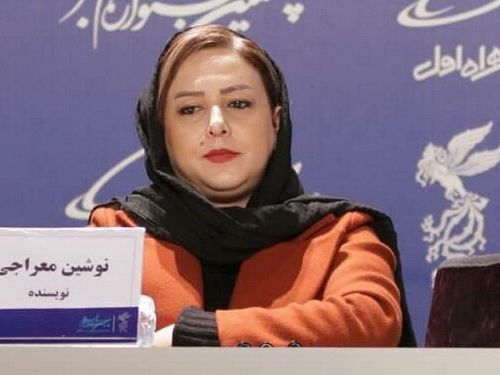
Hardliner clerics and lawmakers in Iran are up in arms for a comment by a screenwriter perceived as condoning male and female partnership without marriage.
The parliament has summoned Culture Minister Mohammad Mehdi Esmaili to offer his explanation about the comments made by a female screenwriter at the closing ceremony of Fajr Film Festival that was meant to celebrate the victory of Iran's Islamic revolution on its 43rd anniversary in mid-February.
In her controversial comments, Noushin Meraji had shyly defended the relationship between the protagonists in her screenplay who were not married but lived together. Hardliners and fundamentalist clerics were quick to raise the cry of blasphemy.
In a video that was released later, Meraji apologized for her comment. She said only 10 seconds of her remarks turned out to be controversial because it was made under huge media pressure during a news conference after the screening of the movie Namour [Damp]. She said what her comment did not mean that a love affair without a marriage was legitimate.
Meraji said in the video that she is a devoted Muslim and a family woman and stressed that she was deeply sorry if her comment led to a misunderstanding. But the temptation to start an outcry was too great for fundamentalists to miss the opportunity.
The Chairman of the Cultural Committee of the Majles, hardline cleric Morteza Aaq-Tehrani, however, said that he has already told the Culture Minister that "such an insult" cannot be tolerated by the Majles. This comes while Esmaili had explained the matter and apologized in a live interview on the state television Saturday night.
In an interview with Tasnim news agency, the lawmaker accused the screenwriter of undermining divine laws. Acknowledging that she had apologized he still insisted that the Minister should come to the Majles to offer his explanation.
In another development, the right-wing association of seminary teachers in a statement lashed out at the screen writer and criticized the Ministry of Culture and Guidance for the "un-Islamic mood" at the festival which "undermined Islamic values including hijab."
Later, female seminarians and Basij militia issued a separate statement condemning Meraji for her remarks. They said in their statement that "The government should slap shameless actresses in the face for their shameless behavior." It appears that the seminarians did not know that Meraji was not an actress. According to the statement, "As far as God is concerned, there is no difference between those who commit a bad act and those who advocate such an act." The statement added that "It is shameful that the festival has advocated adultery.”
However, former conservative lawmaker Ali Motahari criticized Meraji's critics and condemned the controversy surrounding her remarks. Motahari told Nameh News website: "Nearly all of those who criticized Merajicalled for punishing her by slapping her in the mouth or in the face. This is not how Muslim scholars should behave." He called on clerics at the seminary to follow the teachings of his father Ayatollah Mortaza Motahari and respond to controversial statements in a rational way and offer their own argument rather than attacking someone for controversial remarks.
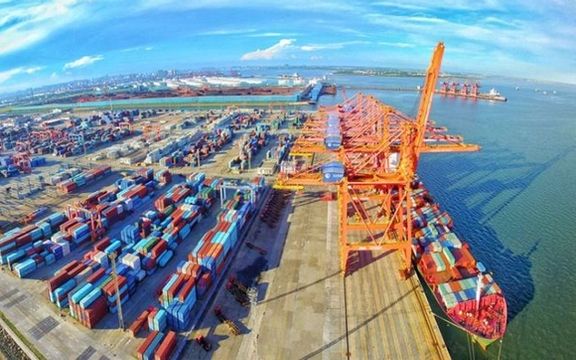
China has reported just $6.5 billion of imports from Iran in 2021, while other data show it imported more than $20 billion of Iranian crude and oil biproducts.
Firms such as TankerTrackers that monitor shipments and vessel movements worldwide, and the advocacy group United Against Nuclear Iran have reported that China imported a daily average of 850,000 barrels of oil and biproducts from Iran in 2021, much higher than in the previous year.
Data released by China’s Customs Administration, however, shows there was no increase year-on-year in Iranian imports. (We cannot use the link to the figures because China's Customs website indicates it is 'insecure'.)
The average price of Iranian oil is believed to have been $70 per barrel in 2021 and China bought more than 300 million barrels, which would make the total more than $20 billion.
When the United States imposed full sanctions on Iran’s oil exports in May 2019, China continued to buy 100,000-200,000 bpd until the third quarter of 2020. But before the US presidential elections, reports emerged that Iran was shipping more crude to China and the volume steadily increased, reaching the current levels.
Throughout last year, major American business publications such as The Wall Street Journal and Bloomberg were reporting that China had substantially increased its oil imports from Iran, which could undercut Washington’s leverage in the nuclear talks.
A report issued this week by Iran’s Customs Organization puts the country’s non-oil exports to China in 2021 at more than $13 billion, which is twice what China claims it imported from Iran. If this figure is correct, it means Iran’s total exports, including oil, reached $35 billion versus $6.5 billion announced by Beijing.
The figure for non-oil exports to China announced by Iranian customs must have included petrochemicals and minerals, since its overall figure for exports in these sectors in 2021 was more than $20 billion. China is the biggest customer for Iran’s petrochemicals and minerals.
United States has also sanctioned many of Iran’s petrochemical companies for their ties with the Revolutionary Guards, which is designated as a terrorist organization by Washington. There are also sanctions on many Iranian mining companies, especially dealing in metals.
This could be the reason why China has not disclosed the real monetary value of imports from Iran.
Critics say the Biden Administration has failed to enforce sanctions imposed by former president Donald Trump on Tehran, as it has been trying to revive the 2015 nuclear agreement (JCPOA) with Iran. China seems to have taken advantage of this.
In 2018, Iran’s Supreme Leader Ali Khamenei signaled a new emphasis in Iran’s foreign policy dubbed ‘Looking East’ and in March 2021 Tehran and Beijing signed a 25-year strategic cooperation agreement with details kept secret. Iran expects China to invest up to $400 billion, which would include what many fear privileges for Chinese companies, particularly in oil and gas.
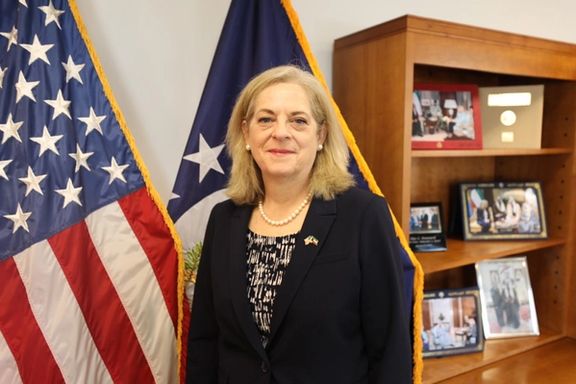
US Ambassador to Kuwait Alina Romanowski has accused Iran of continuing its “destabilizing activities” across the Middle East.
Romanowski, who will soon head to Baghdad after she was nominated as ambassador to Iraq by President Joe Biden, said on Sunday that the Iran’s proxies are a real problem for the stability of the region.
“Iran in our view is promoting very destabilizing activities in the region, which doesn’t help the security of the region; the support they are giving to non-state actors is a real problem in terms of stability”, she told TimesKuwait.
She said Washington is trying to find a solution for the Islamic Republic’s support for Houthis, noting that “Our efforts are focused on assisting people in Yemen on humanitarian grounds, but at the same time in the UAE we are giving support on the defense side”.
About the Biden administration’s indirect nuclear negotiations with Iran in Vienna, she said, “We are in a very delicate time now in this negotiation… We are consulting our partners and allies in the region, and also with the EU. We see that time is running out in terms of finding a solution and our ways to go back to the JCPOA. We have the Iranians as partners too, but at the end of the day, our objective is for us not to see Iran acquiring the capability to further destabilize the region”.
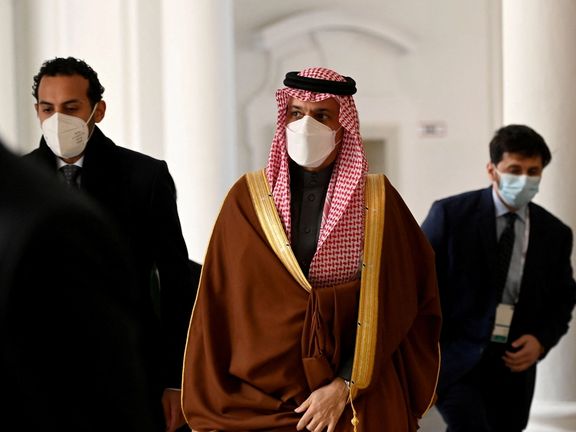
Saudi Arabia's foreign minister said Saturday the kingdom was looking to schedule a fifth round of direct talks with Iran despite a "lack of substantive progress" in previous rounds.
Prince Faisal bin Farhan Al Saud, speaking at the Munich Security Conference, also voiced hope there was a serious desire by Iran to find a "new modus operandi" in the region.
The two countries held talks in April last year with Iraqi mediation. Tehran said the talks were productive, while Riyadh said no serious progress took place.
Iran’s president Ebrahim Raisi who took office last August announced that his government’s priority was to improve relations with regional countries, but no visible change has taken place in Tehran’s regional policies, including support for Houthis in Yemen or militant militias in Iraq and elsewhere.
Sunni Muslim Saudi Arabia and Shi'ite Iran are locked in several proxy conflicts around the region, including in Yemen.
Houthis have continued missile and drone attacks against civilian targets in Saudi Arabia and in January also launched missile strikes against Riyadh’s ally, the United Arab Enirates.